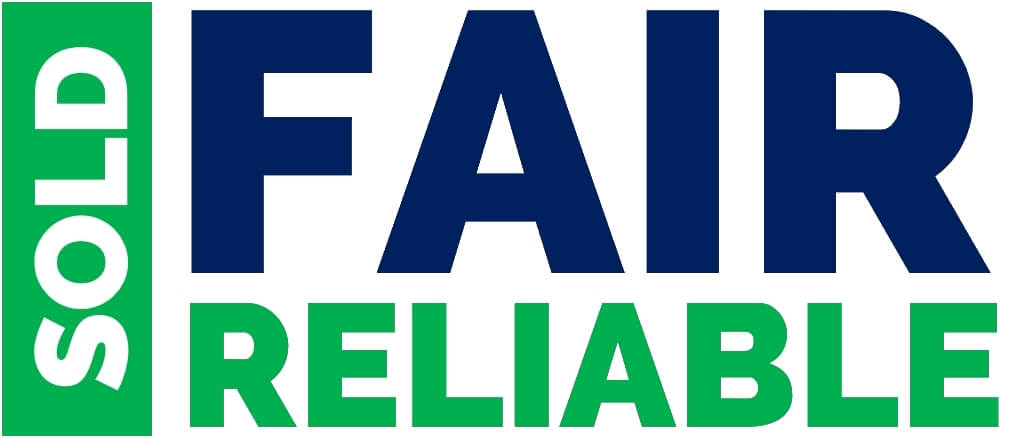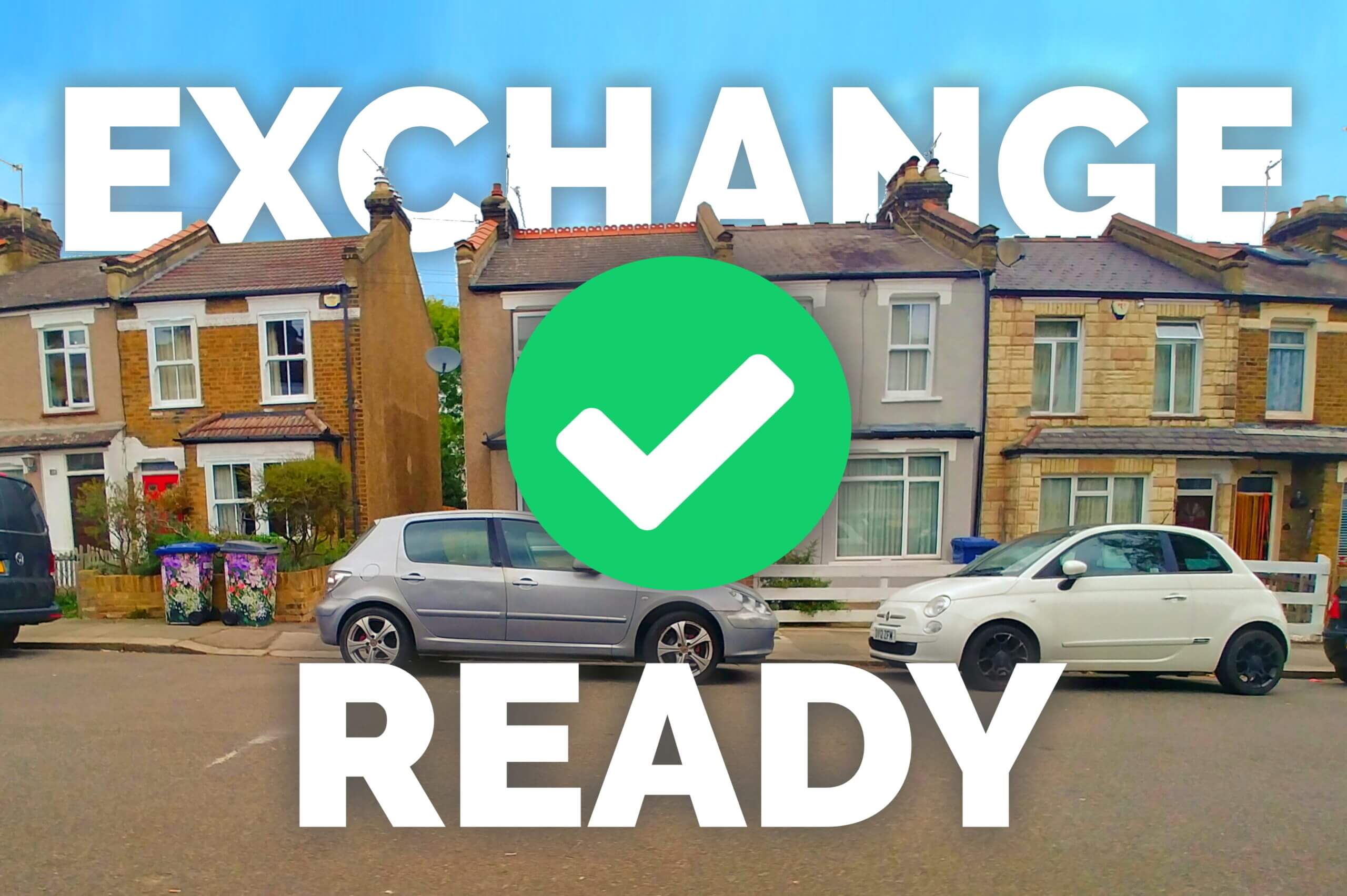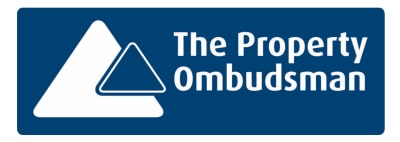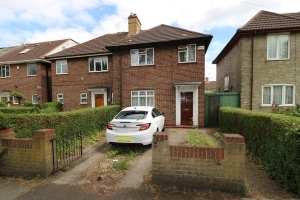Selling a flat with a lost or missing lease?
- Cost effective
No upfront fee & sell for free options - Quick
Sell your property in as little as 28 days - Secure & reliable
Legally binding sale on auction day - Fair & transparent
Sold to the highest bidder
For your peace of mind we are a member of The Property Ombudsman


Selling by auction is quick and easy. Request a no-obligation auction sale estimate for your house or flat.
- Reliable
- Fast
- Secure
Interested to learn more about the easy and efficient process of selling your flat by auction?
Talk to our team on 0800 862 0206
Selling a Flat with a Lost or Missing Lease: Comprehensive Guide
Selling a flat with a missing or lost lease in the UK can be a challenging process, but it is not impossible. If you are in this situation, understanding your options and the legal implications is essential to ensure a smooth sale. This article will explore the key aspects of selling a flat with a missing lease, including the steps you can take to rectify the issue and how it may impact the sale price and buyer interest.
Jump to section: Frequently Asked Questions

What is Meant by “Lost or Missing Lease”?
A lost or missing lease refers to a situation where the original lease document, which sets out the terms of ownership for a leasehold flat, is unavailable. The lease is a crucial legal document that establishes the leaseholder’s rights and responsibilities and details important information such as the lease length, ground rent, and service charges. Without it, selling or even proving ownership of the flat can become significantly more complicated.
Clarifying the Situation: Is the Lease Truly Missing?
Before taking any drastic measures, it is important to clarify whether the lease is truly missing. The leaseholder should first conduct a thorough search of their personal records, as it may have been misplaced rather than lost. If the document is not found, the next step is to contact the solicitor or conveyancer who handled the original property purchase, as they may have retained a copy. Mortgage lenders may also hold a copy of the lease if the property was financed with a loan.
Additionally, the freeholder or managing agent should be contacted, as they typically hold copies of lease agreements for their records. If the lease is registered with the Land Registry, obtaining an official copy may be an option. However, some older leases may not be digitally recorded, making retrieval more complex.
If all these avenues fail, the leaseholder may need to consider reconstituting the lease through legal means, such as obtaining a statutory declaration. Understanding the precise status of the missing lease is crucial in determining the next steps and ensuring a smoother sale process.
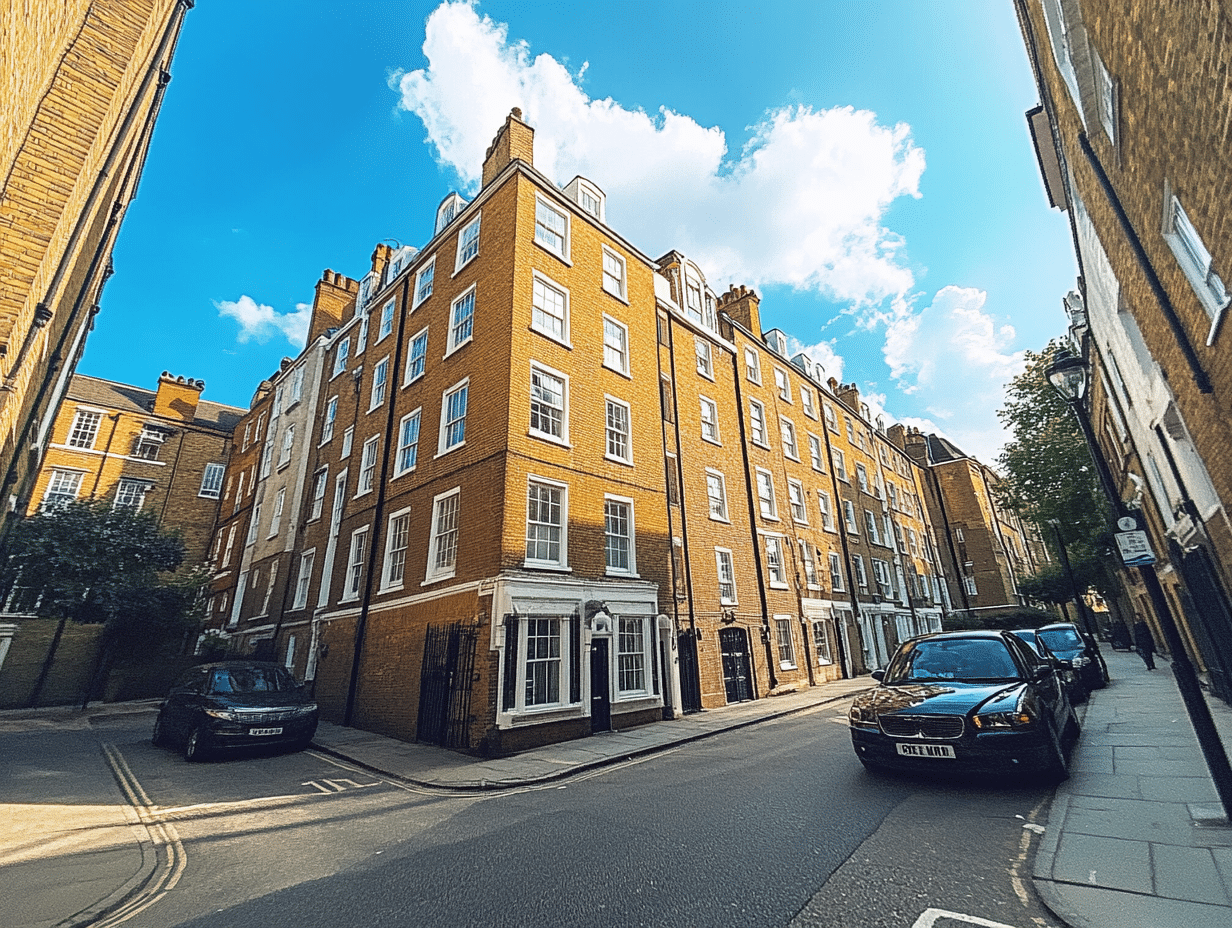
Why Do Leases End Up Getting Lost?
Leases can become lost for a variety of reasons, including:
-
Misplaced documents over time, especially for older properties where paper records were the norm.
-
Solicitors or conveyancers failing to return the lease after completion of the property purchase, often due to administrative oversight.
-
Freeholders or managing agents misplacing their copies, particularly if there have been changes in management companies or property ownership.
-
Leaseholders inheriting a property without receiving full documentation, which can be common in cases of probate or transfers between family members.
-
Destruction of documents due to fire, floods, theft, or other unforeseen circumstances, leading to the permanent loss of original paperwork.
-
Failure to register the lease with the Land Registry, particularly for older leases, meaning that no official digital copy exists for retrieval.
-
Mortgage lenders misplacing lease documents after a loan has been repaid or refinanced, as they may not have deemed it necessary to retain them beyond a certain period.
Regardless of the reason, a lost lease can pose significant challenges when it comes to selling a flat, necessitating action to replace or reconstitute it before proceeding with a sale.
Can I Sell a Flat if I Have Lost the Lease Document?
It is possible to sell a flat with a missing lease, but it is more complex. Most buyers and mortgage lenders require a copy of the lease as part of the legal due diligence process. Without it, the buyer may struggle to secure a mortgage, reducing the pool of potential purchasers to cash buyers only.
If you are selling without a lease, you may need to take additional steps to reassure potential buyers. This includes obtaining a copy of the lease from the freeholder, solicitor, or Land Registry if possible. If a copy cannot be sourced, you may need to reconstitute the lease with legal assistance and a statutory declaration. Indemnity insurance could also provide some reassurance to buyers, though its effectiveness depends on individual lender policies.
Selling a property without a lease can impact the sale price as buyers may perceive increased risk. Additionally, a missing lease could lead to delays in the transaction process. If you cannot retrieve or replace the lease, it may be advisable to adjust the asking price to reflect the additional complexity the buyer will face.
Short on time?
If you don’t have the time to read this article in full, we can come back to you with a free auction appraisal, to help you decide if selling by auction is a good option for you. Request a free estimate and we’ll come back to you.
How Do I Get a Copy of My Lease Agreement?
If your lease is missing, you may be able to obtain a copy from multiple sources, depending on how the lease was originally recorded and stored. The first step is to check your personal records or any paperwork you received when you purchased the flat. If you cannot find the lease there, consider the following options:
-
The freeholder or managing agent – They typically hold copies of lease agreements for their properties, and you may be able to request a duplicate.
-
The solicitor who handled the property purchase – If you used a solicitor or conveyancer, they may still have a copy of your lease on file, particularly if the transaction was recent.
-
The mortgage lender – If you have a mortgage on the property, your lender may hold a copy of the lease, as they require this document for financing purposes.
-
The Land Registry – If your leasehold title is registered, the Land Registry may have a copy of the lease. You can check by searching their records online and requesting an official copy.
If none of these sources yield a copy, you may need to reconstitute the lease through legal means, such as obtaining a statutory declaration, or work with a solicitor to formally request a duplicate from the freeholder.
Is It Possible to Replace a Missing Lease?
Yes, a missing lease can often be replaced through legal channels. If the original document cannot be found, the first step is to contact the freeholder or managing agent, as they may have a copy. If the freeholder does not have a copy, it may be possible to obtain one from the solicitor who handled the original purchase, the mortgage lender, or the Land Registry if the lease was registered.
If no copies of the lease exist, it may be necessary to reconstitute the lease using a statutory declaration. This process involves gathering evidence of the lease terms from previous owners, solicitors, or property management records. A solicitor will usually assist in drafting the statutory declaration, which is then submitted as sworn evidence in the absence of the original lease.
Replacing a missing lease can be a time-consuming process, potentially taking several months depending on the cooperation of the freeholder and other involved parties. If a replacement cannot be easily obtained, indemnity insurance may be necessary to provide protection against potential legal complications. Seeking professional legal advice early in the process can help streamline the replacement of a missing lease and facilitate a smoother property transaction.

Can a Missing Lease Be Reconstituted?
Yes, a solicitor can help reconstruct a lease by gathering evidence of the lease terms. This often involves obtaining a statutory declaration, sworn evidence from relevant parties (such as previous owners, solicitors, or managing agents) confirming the original lease terms.
Reconstituting a lease typically requires detailed historical records, including previous transaction documents, any available copies of the lease from third parties, or even financial records that indicate ground rent payments. A solicitor will compile this evidence to draft a replacement lease, which must then be agreed upon by the freeholder. If the freeholder is uncooperative, legal action may be required to formalise the reconstituted lease through the courts.
Additionally, if no direct records are available, witness statements from those familiar with the original lease terms may be used to support the reconstitution process. This can make the procedure lengthy and complex, but it is a viable solution when the original lease document is permanently lost.
How Long Does It Take to Replace a Lost Lease?
Replacing a lost lease can take anywhere from several weeks to several months, depending on multiple factors. The timeline largely depends on how quickly the necessary documents can be sourced, whether the freeholder cooperates, and if additional legal steps are required.
If the lease is available from the freeholder or Land Registry, obtaining a replacement copy may take only a few weeks. However, if the lease needs to be reconstituted through a statutory declaration, the process can extend significantly, often taking several months. The solicitor handling the case will need to gather supporting evidence, prepare the necessary legal documentation, and possibly liaise with third parties, such as former leaseholders, mortgage lenders, or property management companies, to verify the lease terms.
Another potential delay can arise if the freeholder is unresponsive or unwilling to issue a new lease. In such cases, legal intervention may be necessary, further extending the process. Additionally, if indemnity insurance is required to mitigate risks associated with the missing lease, securing the policy can add extra time to the process.
Given the potential complexities, leaseholders looking to sell should act as soon as possible to replace a lost lease, ensuring the sale is not delayed unnecessarily.
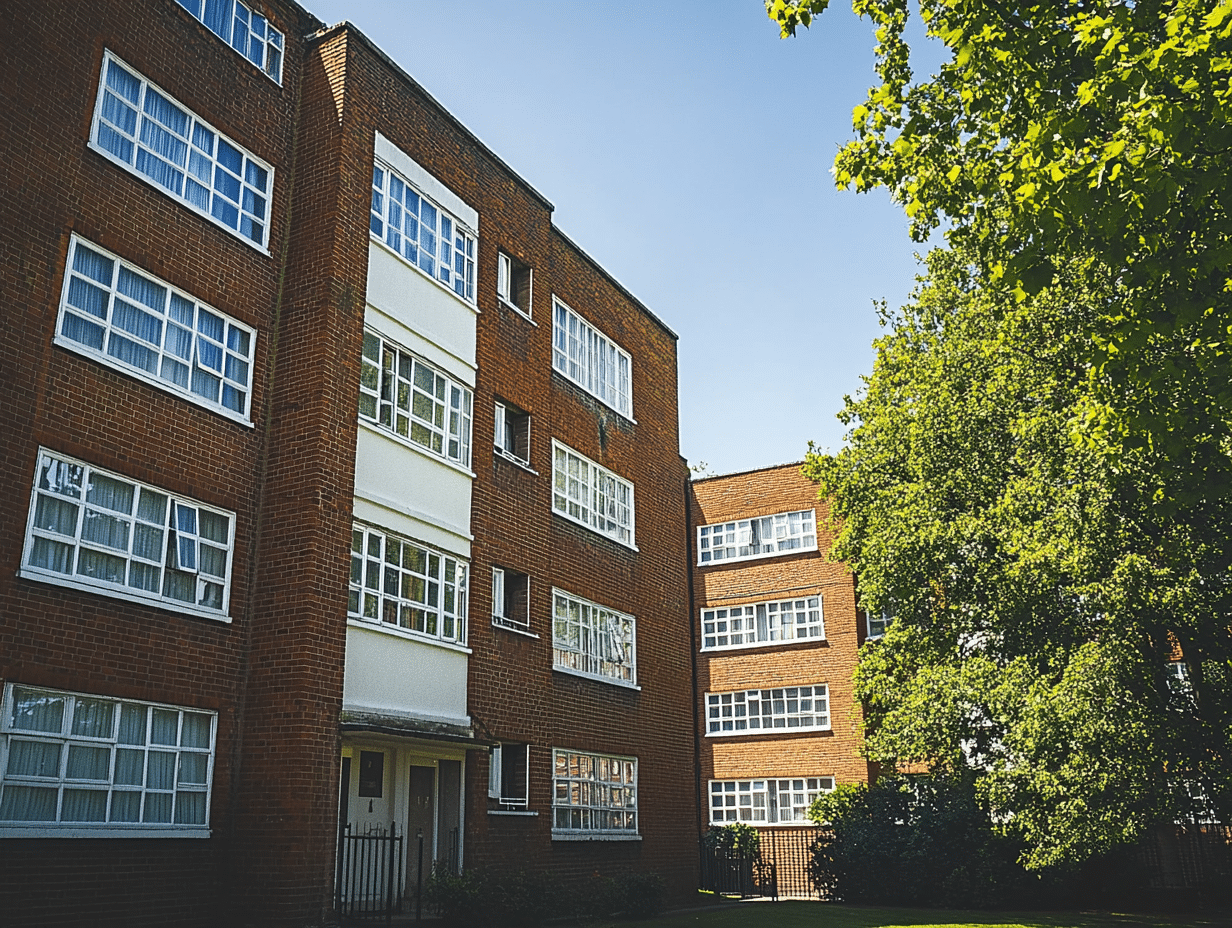
Can a Solicitor Help Retrieve My Lost Lease?
Yes, a solicitor can assist in obtaining a replacement lease, liaising with the Land Registry, the freeholder, and any other necessary parties to resolve the issue efficiently. They can conduct searches to determine whether the lease is registered with the Land Registry and, if so, obtain an official copy. If the lease is not registered, they may be able to request a duplicate from the freeholder or managing agent.
Additionally, a solicitor can help reconstitute the lease by gathering supporting documents such as historical transaction records, previous conveyancing files, and mortgage lender records. If no copies exist, they can draft a statutory declaration to confirm the lease terms and facilitate legal recognition.
Solicitors can also assist in negotiating with the freeholder to issue a new lease if necessary. In cases where the freeholder is unresponsive, a solicitor may advise on legal actions to compel cooperation or explore indemnity insurance options to reassure potential buyers and lenders. Engaging a solicitor early can help streamline the process and avoid unnecessary delays in selling or remortgaging the property.
What is a Statutory Declaration for a Missing Lease?
A statutory declaration is a legally sworn statement confirming the details of a lost lease. It is used when no original or duplicate copy of the lease is available and serves as formal evidence to support the reconstitution of the lease. The declaration must be made in the presence of a solicitor, commissioner for oaths, or notary public, and it must outline all known details of the lease, including its terms, duration, and any relevant historical records.
Typically, a statutory declaration includes supporting documents such as historical correspondence with the freeholder, ground rent receipts, and any partial records that confirm the lease’s existence and terms. If witnesses, such as previous owners, solicitors, or managing agents, can verify the lease’s details, their statements may also be included in the declaration.
Once drafted, the statutory declaration is submitted to the relevant parties, including the Land Registry and the freeholder, to assist in reconstituting the lease. While this process does not replace the original lease, it provides a legally recognised basis for recreating its terms and facilitating property transactions.
Do I Need Indemnity Insurance if My Lease is Lost?
Indemnity insurance may be required if the lease is missing and cannot be easily replaced. This type of insurance provides protection against potential legal disputes, financial claims, or complications that may arise due to the absence of the lease. It is particularly useful when selling a leasehold property, as it reassures buyers and mortgage lenders that they are protected against any risks associated with the missing lease.
Indemnity insurance is usually a one-time premium payment, and its cost varies depending on factors such as the value of the property, the likelihood of a legal challenge, and the specific risks covered by the policy. The policy typically remains in place for the lifetime of ownership and may be transferable to future buyers, providing ongoing protection.
While indemnity insurance can help mitigate risks, it does not replace the lease itself. Mortgage lenders may still be hesitant to approve a loan without a copy of the lease, and some buyers may view the absence of a lease as a deal-breaker. Therefore, while obtaining indemnity insurance is a valuable step, it is often advisable to take parallel steps to recover or reconstitute the missing lease where possible.

Do I Need to Replace My Lease Before Selling?
While not mandatory, replacing the lease before selling will make the process smoother and attract a wider range of buyers, including those requiring a mortgage. Mortgage lenders typically require a copy of the lease to approve financing, so without it, potential buyers may struggle to secure a loan. This limitation often reduces the pool of interested buyers and could lead to a lower sale price.
If replacing the lease is not feasible before selling, sellers should be prepared to negotiate with cash buyers who may be willing to proceed despite the missing lease. However, cash buyers often expect a discounted price due to the legal complexities and potential risks involved.
Additionally, obtaining indemnity insurance can help mitigate some concerns, though it does not fully replace the need for a lease document. If a buyer is willing to proceed with indemnity insurance, they should seek legal advice to ensure it provides adequate protection.
To avoid delays and complications, sellers should explore all available options for replacing the lease before listing the property. Consulting a solicitor early in the process can help determine the best approach and increase the chances of a smooth and successful transaction.
Read our guide to selling a short lease flat
Our guide is designed to assist homeowners in navigating the sale of a short lease flat, and the pros and cons of selling by auction.
Read more about selling a short lease flat by auction.
Will a Missing Lease Affect My Sale Price?
Yes, a missing lease can significantly impact the sale price of your flat due to the increased legal complexity and risk involved for buyers. Many mortgage lenders will not finance a purchase without a valid lease, limiting the pool of potential buyers to cash purchasers, who often negotiate a lower price due to the perceived risk and hassle of obtaining or reconstituting the lease.
Additionally, buyers may be deterred by the legal uncertainty surrounding a missing lease, as it raises concerns about ownership rights, ground rent obligations, and service charges. The difficulty in securing financing can lead to longer sale periods, requiring sellers to either wait for a rare buyer willing to take on the risk or reduce the asking price to attract interest.
Moreover, if the missing lease also coincides with a short lease (typically under 80 years), the price reduction could be even greater. Buyers may factor in the costs of extending or replacing the lease, leading to further negotiations on price. Sellers in this situation should consider obtaining indemnity insurance or working with a solicitor to reconstitute the lease before listing the property, as doing so can help secure a higher sale price and a smoother transaction process.
How Do I Get a New Lease from the Freeholder?
To obtain a new lease, you will need to contact the freeholder and formally request a replacement. The freeholder may charge a fee for providing a new lease or reissuing the existing one. If the freeholder is cooperative, this process can be straightforward, but if they are unresponsive or unwilling to provide a replacement, legal intervention may be required.
If the lease is missing and needs to be reconstituted, the freeholder will typically require evidence of the original lease terms. This can be done through historical records, mortgage documents, or witness statements from previous owners or managing agents. A solicitor can assist in negotiating with the freeholder and drafting the necessary legal documents.
In some cases, if the freeholder is unwilling to issue a new lease, the leaseholder may be able to apply for a lease extension under the Leasehold Reform, Housing and Urban Development Act 1993. This allows leaseholders with qualifying rights to extend their lease, which could provide an opportunity to resolve the missing lease issue while also increasing the property’s value.
Leaseholders should also consider the potential costs involved, including legal fees, valuation costs, and any premium the freeholder may charge. It is advisable to seek professional legal advice before approaching the freeholder to ensure the best possible outcome.
What is the Legal Process for Selling a Flat with a Lost Lease?
The legal process for selling a flat with a lost lease can be complex, requiring several steps to ensure a smooth transaction. The process involves:
-
Identifying whether a copy of the lease is available – Before taking further steps, check with solicitors, mortgage lenders, the freeholder, or the Land Registry to determine if a duplicate lease exists.
-
Requesting a duplicate from the freeholder or managing agent – If the lease is missing but was originally issued by a known freeholder or managing agent, they may be able to provide a copy or reissue it for a fee.
-
Reconstituting the lease if necessary – If no duplicate can be found, the leaseholder may need to reconstitute the lease with a solicitor’s assistance. This process includes gathering historical records, mortgage lender documentation, and any available witness statements to verify the lease terms.
-
Obtaining a statutory declaration – If reconstitution is required, a statutory declaration may be needed to confirm the lease’s original terms. This legal document is sworn evidence that can help in cases where no other documentation is available.
-
Considering indemnity insurance – Indemnity insurance can help reassure potential buyers and mortgage lenders, offering protection against legal risks associated with the missing lease.
-
Informing potential buyers of the situation – Full disclosure is essential to ensure transparency and avoid future legal disputes. Buyers should be made aware of whether a replacement lease has been secured or if they need to take further legal steps post-purchase.
-
Proceeding with the sale – If a new lease has been obtained or indemnity insurance is in place, the sale can proceed. However, if no lease is available, selling to a cash buyer may be the best option, as most mortgage lenders require a valid lease to approve financing.
Due to the complexities involved, consulting with a solicitor early in the process is crucial to navigating legal requirements efficiently and avoiding unnecessary delays in the sale.
Should I Lower My Price if I Sell a Flat with a Missing Lease?
Since a missing lease limits buyer options, you may need to lower your asking price to attract cash buyers willing to deal with the complications. Many mortgage lenders will not finance a property without a valid lease, which means that traditional buyers relying on financing will be unable to proceed with the purchase. This reduces demand and increases the likelihood of needing to adjust the price to reflect the added risk and effort required by a potential buyer.
Additionally, buyers may factor in the costs of obtaining a new lease, legal fees, and any potential negotiations with the freeholder when making an offer. This can further impact the achievable sale price. If the missing lease issue is compounded by a short lease (typically under 80 years), the price reduction may be even more significant, as lease extension costs will also be considered.
To minimise price reductions, sellers should explore obtaining a replacement lease before listing the property. If that is not possible, indemnity insurance and full disclosure to buyers can help maintain a competitive price while reassuring potential purchasers about the risks involved.
What About Selling a Flat with a Lost Lease and a Short Lease?
A short lease (typically under 80 years) further complicates the sale. In such cases, you may need to negotiate a lease extension with the freeholder before selling, which can be costly but increases the property’s value. Buyers may be hesitant to purchase a flat with both a missing and short lease, as it presents additional legal and financial challenges.
When selling a flat with both issues, you will likely be restricted to cash buyers, as most mortgage lenders will not approve financing for properties with uncertain leasehold terms. Cash buyers, however, may use the situation to negotiate a lower price due to the potential costs of extending or replacing the lease.
If you choose to extend the lease before selling, the process can take several months and may require a premium payment to the freeholder. This investment, however, can significantly enhance the saleability of the property and attract a wider range of buyers.
For those unable to extend the lease, options such as indemnity insurance and full disclosure of the risks to potential buyers can help facilitate the sale. Consulting a solicitor to assess the best course of action is crucial to navigating these complexities effectively.

What Are the Best Options for Selling a Flat with a Lost Lease?
Selling a flat with a missing lease presents unique challenges, but several options can help facilitate the process:
-
Obtain a replacement lease – This is the most effective way to ensure a smooth sale at full market value. Contacting the freeholder or managing agent to issue a new lease or obtaining a reconstituted lease through legal means can open the sale to a wider range of buyers, including those requiring mortgage financing.
-
Sell to a cash buyer – If replacing the lease is not an option or would take too long, selling to a cash buyer may be the most practical route. Cash buyers typically move faster and are more willing to deal with legal complexities, though they may negotiate a lower price to account for the risks involved.
-
Negotiate with the freeholder – Some freeholders may agree to issue a new lease before the sale. While this may involve additional costs, it can make the property more attractive to buyers and improve its value.
-
Indemnity insurance – If a lease cannot be replaced easily, indemnity insurance may provide a level of security to buyers and lenders. However, this option does not always guarantee mortgage approval, so consulting a solicitor to assess its effectiveness is essential.
-
Lease extension as an alternative – If the lease is both missing and short, leaseholders might consider negotiating a lease extension before selling. This can significantly enhance the saleability of the flat and attract more buyers.
Each option has its own advantages and potential challenges, so it is advisable to seek professional legal advice to determine the best course of action based on your specific situation.
Is a Cash Buyer Needed, or Will a Mortgage Company Lend on a Flat with a Missing Lease?
Most mortgage lenders require a copy of the lease before approving financing. If the lease is missing, mortgage options are limited, and a cash buyer may be the most viable route. Without a lease, lenders are unable to verify critical details such as lease length, ground rent, and service charges, making the property high-risk in their assessment.
Some specialist lenders may consider financing the purchase, but they will typically impose strict conditions, higher interest rates, or require the lease to be reconstituted before completing the transaction. This can lead to delays and additional costs, making the process less attractive for buyers reliant on mortgage financing.
If the lease is missing but can be replaced or reconstituted, it is advisable to take these steps before marketing the property to attract a broader range of buyers. However, if replacing the lease is not feasible, targeting cash buyers who are willing to take on the complexities may be the most practical solution.
1. Can I sell my flat if I have lost the lease document?
Yes, but it can be more complicated. Most buyers and mortgage lenders require a copy of the lease. If it’s missing, you may need to reconstitute the lease or sell to a cash buyer.
2. How can I check if my lease is really lost?
First, check your personal records, ask your solicitor, mortgage lender, or contact the freeholder or managing agent. The Land Registry may also have a copy if your leasehold title is registered.
3. What happens if I cannot find a copy of my lease?
If no copy is available, you may need to reconstitute the lease through a statutory declaration, which involves gathering supporting documents and legal evidence to confirm the lease’s terms.
4. How long does it take to replace a lost lease?
The process can take anywhere from several weeks to a few months, depending on the availability of records and the cooperation of the freeholder or Land Registry.
5. Will a missing lease affect my property’s value?
Yes, a missing lease can reduce your sale price since mortgage lenders typically require a copy of the lease. This may limit your pool of buyers to cash purchasers, who often negotiate lower prices.
6. Can I get indemnity insurance for a lost lease?
Yes, indemnity insurance may provide protection against legal risks arising from a missing lease. However, it does not replace the lease itself and may not satisfy mortgage lenders.
7. Do I need to replace my lease before selling my flat?
It is not always mandatory, but it is advisable. Replacing the lease before selling makes the property more attractive to buyers and mortgage lenders.
8. How can a solicitor help with my lost lease?
A solicitor can assist in searching for a copy, reconstituting the lease, liaising with the freeholder or Land Registry, and securing indemnity insurance if needed.
9. Can a missing lease be reconstituted?
Yes, through legal processes such as obtaining a statutory declaration and providing evidence of previous ownership, financial records, or correspondence related to the lease.
10. Can I sell my flat to a mortgage buyer if my lease is lost?
Most mortgage lenders require a lease, so selling to a mortgage buyer may not be possible unless the lease is replaced or indemnity insurance is obtained. Selling to a cash buyer may be the simplest solution.
Free auction estimate
Request a free valuation and reserve price estimate for your property today. In some cases we may need a few more details about your property before providing a free and no-obligation auction sale estimate.
Contact us for guidance on selling your home by auction. Request a free pre-auction appraisal – we’ll be happy to help.
Guide to selling a house by auction
Explains the stages involved in an auction sale. With information about auction sale costs, timescales and the process for selling at auction.
Carry out improvements before selling?
When selling a property in need of improvement, should I spend money on refurbishment works? Or leave the property as is, and let the new owner take care of improvements?
Poor condition property: Auction VS Estate Agent
The private treaty method of sale isn’t suited to some types of property – it’s inefficient and potentially open to abuse.
Selling a short lease flat
The rules of an auction sale mean that buyers must compete to purchase a property. And the highest bidders offer is legally binding – there is no opportunity for them to reduce their offer.


